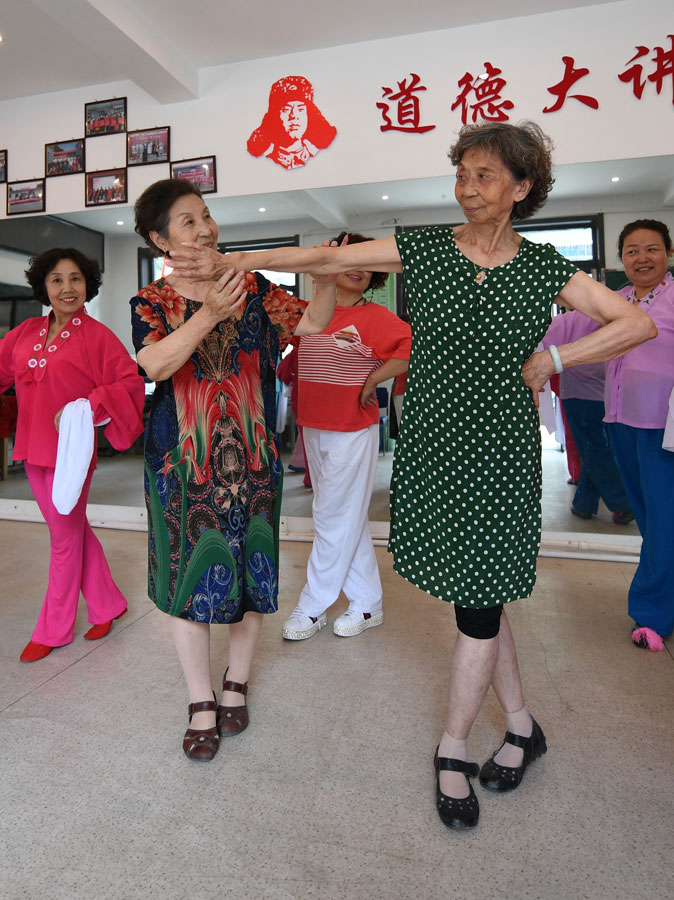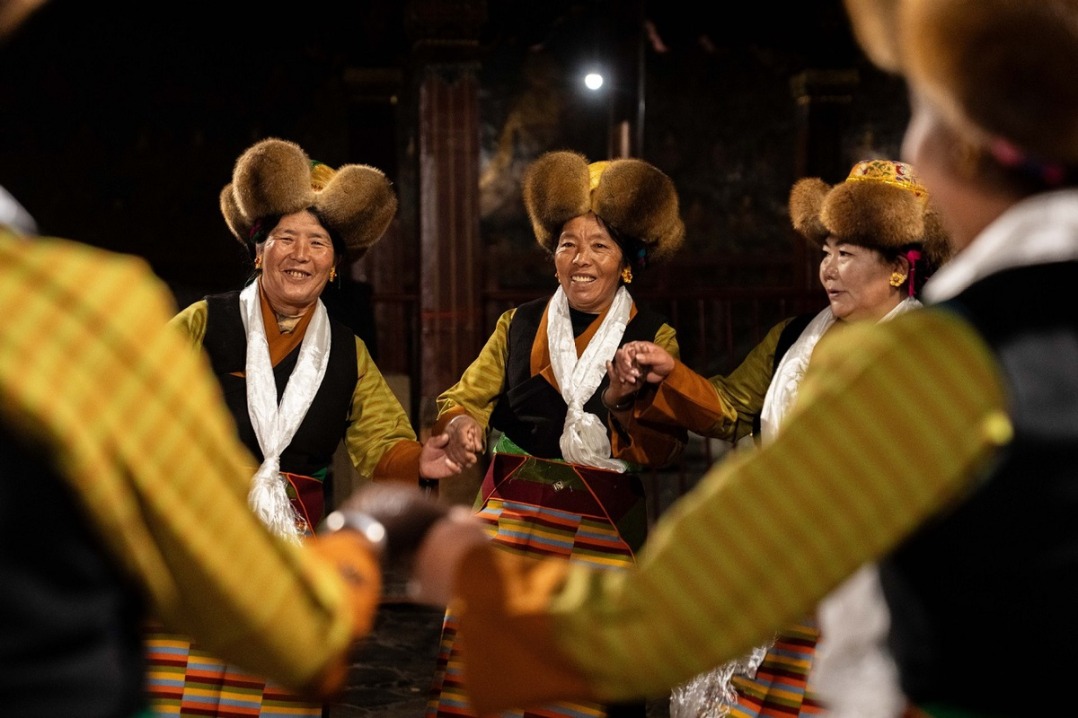Seniors embrace high-quality life


The oldest person in Shanghai is age 111, and the number of centenarians had risen to about 2,300 as of Sept 30, according to the latest report released by the Shanghai Civil Affairs Bureau.
Shanghai is a city of longevity, with 14.9 centenarians per every 100,000 people last year. In 1953, the city was home to just one centenarian, but the figure exceeded 1,000 in 2011 and surpassed 2,000 in 2017.
Women accounted for 75 percent of the centenarians, while people ages 100 to 102 made up 82.9 percent of the total.
Fei Henian, 101, and his wife, Xu Manqian, 100, are the city's oldest couple.
Living downtown, the couple said they have a healthy lifestyle and set strict daily schedules for meals and sleeping. For example, every day they eat breakfast at 7:30 am, lunch at midday and supper at 6 pm.
Maintaining a good relationship and staying positive are also keys to longevity, the couple said.
As one of the cities with the most rapidly aging populations, Shanghai is home to nearly 5 million people age 60 and older, accounting for 33 percent of its total population.
In China, by the end of last year, more than 240 million people, 17.3 percent of the population, were age 60 or older. The figure is expected to reach 255 million by 2020.
Health improvements
In recent years, China has been making efforts to improve elderly care services nationwide, resulting in great improvements in seniors' health generally.
Despite disparities in income, the country's healthcare covered more than 98 percent of seniors in both urban and rural areas in 2015.
A growing number of older people now care more about their spiritual lives. They have also made their lives more colorful, contradicting the notion that older people are boring and lonely.
"Do you want to take a spur-of-the-moment trip? Join me!" wrote Zhang Weili, 56, on WeChat, ahead of the seven-day National Day holiday early this month.
"I got quite a lot of responses from older friends," he said. "We are classmates at a college for seniors. Convening a trip via WeChat has become very popular among us."
Zhou Huaixian started traveling around the country after he retired. "I share interesting stories along my journeys on WeChat. Travel makes me feel happy and shortens the distance between me and my daughter. I now feel very young and better off," the 60-something said.
According to the Survey Report on the Living Conditions of China's Urban and Rural Older Persons (2018), published by the Social Sciences Academic Press in May, more than 14 percent of older Chinese traveled in 2015, with an average spend of nearly 5,000 yuan ($750) per person.
The number has risen in recent years, and more than 22 percent of seniors plan to travel or are considering traveling next year.
The emerging "elderly education" industry also reflects the diverse demands of China's older population.
At least 70,000 colleges accommodate more than 8 million people, who prefer to gain new skills and knowledge instead of killing time at home.
Shanghai University for the Elderly has nine departments, covering subjects including calligraphy and painting, foreign languages, computing, history, housework and music. Computing, English and music are the most popular subjects among the nearly 10,000 senior students.
New consumption patterns illustrate changes in older people's lives. As more seniors have access to the internet, a growing number are spending more time reading the news, watching TV series, playing online games and investing in stocks. Around 12 percent buy products online, according to the report.
"I've downloaded various apps on my phone. I can shop, take photos, film short videos and share them with my friends and family anywhere I happen to be," said an 80-year-old woman surnamed Mei, who lives in the central province of Hunan.
Zhang Xiaohong, an associate professor at the Communication University of China, said: "New technology enriches older people's lives; empty-nest seniors in particular. It can provide supplementary methods of socializing for them and raise their sense of happiness."
China has responded positively to help the rapidly aging population, adopting policies and fostering a social environment in which seniors are respected and cared for so they can live happily.
Xinhua
- Chinese sailor forced to halt Antarctic expedition after robbery
- French, Chinese artists revive industrial heritage in Hunan
- New engineering academicians vow to advance scientific innovation
- Former top railway official expelled from CPC
- Mainland says Taiwan's Lai a 'peace breaker' and 'troublemaker'
- New materials reinforce Nanjing war truth



































